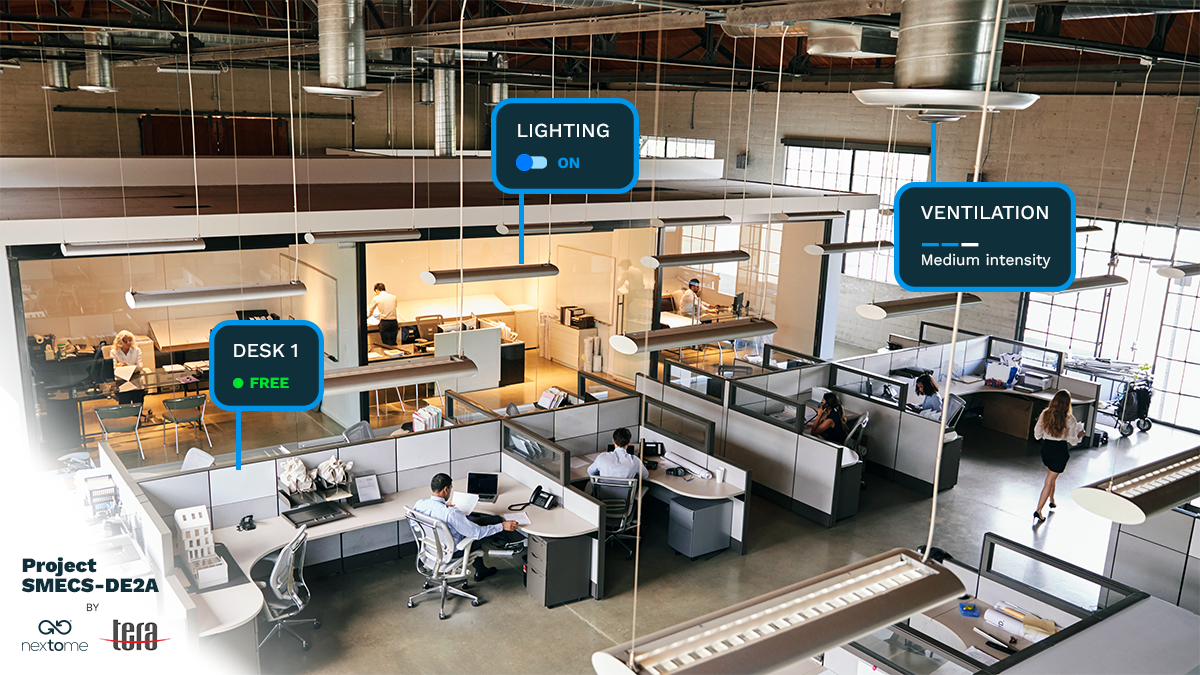Innovation in Southern Italy: a collaboration between businesses to exploit Edge Computing
IoT Edge Computing represents one of the most promising fields for evolution in various application areas, such as mechatronics. It allows the introduction of enormous improvements to existing systems, such as greater resilience to power/network problems, but also the drastic reduction of latency and data traffic to the Cloud.
The IoT has profoundly transformed much of our daily activities, often becoming a reliable companion, since it has been, and still is, at the center of a real revolution. This is especially true in business contexts where continuous and constant monitoring of certain variables becomes a fundamental prerequisite for the proper functioning of systems, such as refrigerators for companies operating in the healthcare or food sectors, or gas and harmful substances in production plants. Since IoT devices often present limitations, Edge Computing completes technological evolution by enhancing devices without altering their discrete nature and ease of integration. If innovative elements that make solutions more regenerative and reparative are added, innovation is produced according to the sustainable and circular model.
The objective of the research project that Nextome is conducting as a member of the “Made in Italy Circular and Sustainable Foundation – MICS”, together with another Italian company, Tera srl, is based on these concepts. The project aims to create systems that, thanks to fundamental properties such as modularity and remote software reconfigurability, can reduce the average production of waste, thus extending the useful life of the systems. The purpose of the project is twofold since there is direct user involvement to achieve a more responsible and sustainable approach to use.

The research project, namely SMECS-DE2A, contains several interesting elements, as it has a strong characterization of industrial research, experimental development activities, technology transfer, and use of existing scientific, technological, and commercial knowledge and skills to develop new or improved products, processes, or services. The project is also favored by a new business model inspired by the principles of servitization; specific and innovative functionalities, also based on AI (Artificial Intelligence), for the efficient management of energy by prosumer users, in combination with localization functionalities, which give the project a further focus on innovation and sustainability.
The current evolution of Tera srl, from a strategic point of view, aims at becoming a continuous reference, at both regional and national level, for the integration of both skills and technologies, adding to those already within its human resources, other emerging technologies, identifiable for example in algorithms (AI-based, also with LBS services integration) for energy efficiency, in the ability to stress the concept of modularity and reconfigurability of mechatronic-electronic-ICT systems to the maximum.
Among the main reasons that lead both Nextome and Tera to believe in this project are the possibility of integrating with a player operating in different domains and reference scenarios, as well as the synergies and investing in a shared innovation project. But also, rethinking IoT devices by introducing modularity as well as a business model oriented towards servitization.
These motivations are evidently aimed at obtaining the widest possible impact from the activities of this project for both players, to lay a concrete and reliable seed in terms of future competitive advantage, through the growth of their know-how to such a level that they can then move to an operational plan that can lead to high-level technological products and services, but also such as to be clearly perceived by stakeholders as fully in line with the trend of sustainability and the circular economy, thus being both in real terms and perception a better company in a better global scenario.
Overall, the group is composed of a perfect mix of researchers, software engineers, data scientists, and more experienced business profiles, and we strongly believe that this team has the potential to make a decisive contribution in an evolutionary perspective not only for the realization of Location-Based Services but for IoT Edge Computing in general.
